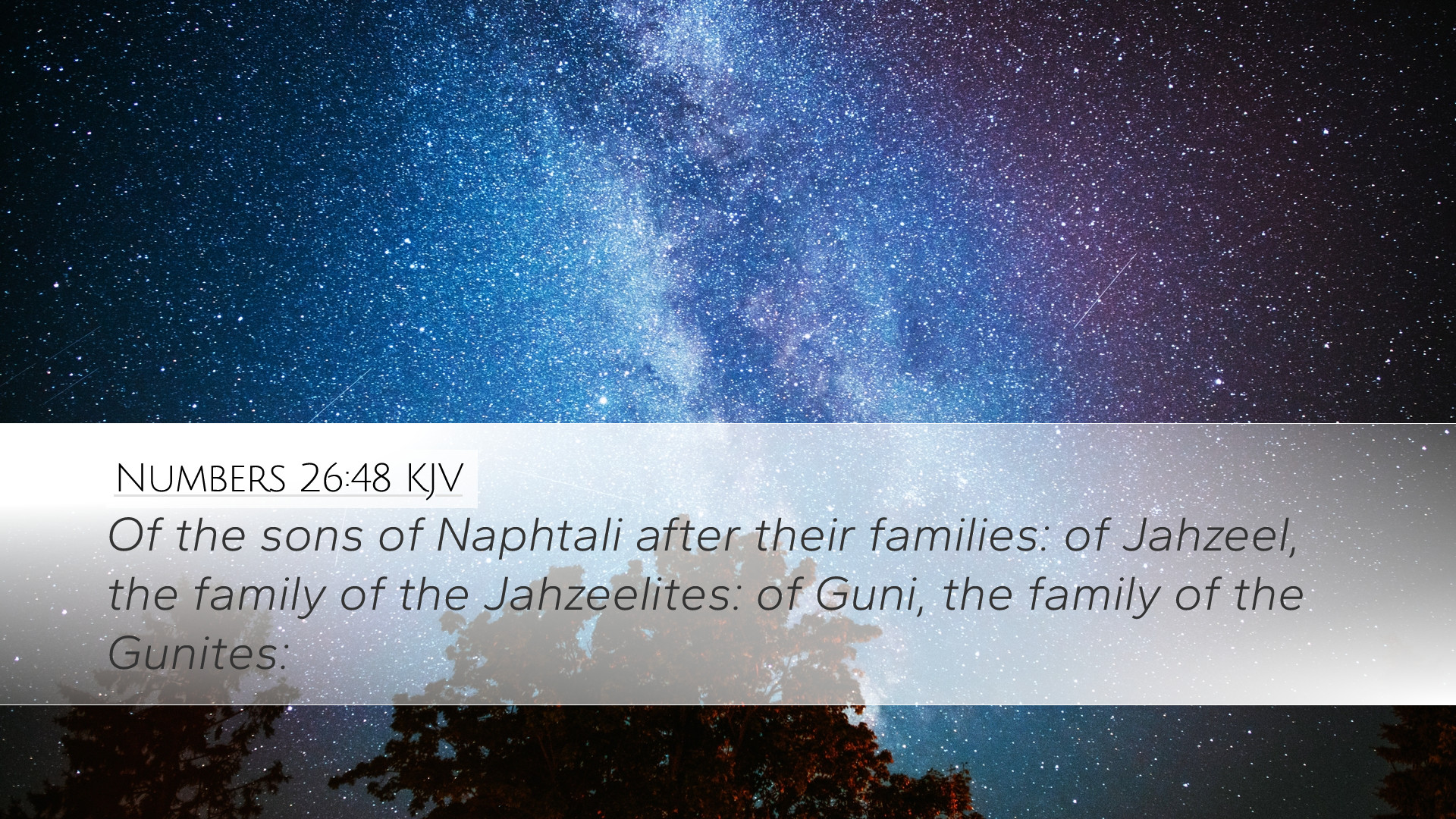Commentary on Numbers 26:48
Verse Context: Numbers 26:48 reads: "The sons of Levi after their families: the Gershonite family, the Kohathite family, and the Merarite family." This verse is part of the larger census of the Israelites in the wilderness, where God commanded Moses to take a census of the people to prepare for the distribution of the land and organization of the Levitical families.
Introduction
This passage holds significant importance, particularly in the context of the Levitical priesthood. The genealogy and organization of the Levites reflect God's divine order. Such organization was crucial for worship and the duties of the Levites, indicating the systematic approach that God employed in setting apart His people for special purposes.
Insights from Commentaries
Matthew Henry's Commentary
Matthew Henry emphasizes the importance of the Levites' distinct roles among the tribes of Israel. He notes that the Levites were chosen not just for physical service but also for spiritual leadership. This grouping into families signifies how God prepared His people for service in worship and community life. The division among the Gershonites, Kohathites, and Merarites indicates the various functions they were to fulfill, which speaks to the idea that every member of the community has a unique role to play in God's plan.
Albert Barnes' Notes on the Bible
Albert Barnes remarks on the significance of the Levite families as a means of ensuring the purity and proper conduct of worship practices. Each family had designated duties: the Gershonites were responsible for the curtains and coverings of the Tabernacle; the Kohathites, the sacred furnishings; and the Merarites, the structural elements. Barnes highlights that through this organization, Moses ensures that worship remains orderly and that God's presence is continuously honored in the camp. This structure reflects a deeper theological truth: God's holiness requires careful, reverent interaction.
Adam Clarke's Commentary
Adam Clarke provides further insights by reflecting on the spiritual symbolism of each Levitical family. Clarke notes that the divisions among the Levites can be seen as representative of various aspects of ministry within the Church. Just as the Levites were set apart for service, so are believers today called to serve God according to their gifts and callings. He also remarks on the historical significance of this census, suggesting it establishes an enduring legacy of worship that is rooted in both physical lineage and spiritual faithfulness.
Theological Implications
This census and the establishment of Levitical families remind readers that God's work is both communal and individual. Each faction of the Levites reflects different aspects of spiritual service - leadership in worship, maintenance of God's dwelling place, and community instruction. Understanding the role of the Levites in the Old Testament encourages today's believers to consider how they too fit into the body of Christ. The church, like Israel, is made up of diverse members, each with distinct functions but united in purpose.
Application for Today's Church
- Recognition of Diversity: The delineation among the Levites teaches modern congregations to appreciate diverse gifts and roles within the church community.
- Emphasis on Service: Just like the Levites, church members are called to serve, whether it is in teaching, worship, or behind-the-scenes roles.
- Holiness of Worship: The careful organization of worship practices during the Exodus period underscores the importance of reverence in today’s worship settings.
- Preparedness for Ministry: The census highlights the notion of being prepared for God’s work; churches are encouraged to train and equip their members.
Conclusion
Numbers 26:48 not only serves to document a historical event but also illustrates timeless principles about God's order, the importance of diverse roles in ministry, and the holiness of worship. For pastors, theologians, and students of the Bible, reflecting on this verse invites a renewed commitment to understanding and fulfilling God’s purpose within the community of faith. Just as God called the Levites, so He calls each believer into fellowship for His glory and service.


